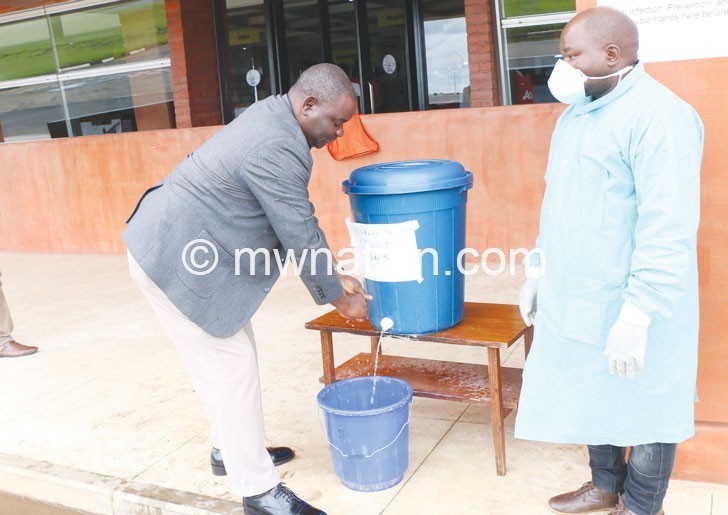Uncharted routes threaten Covid-19 fight
The Department of Immigration and Citizenship Services is struggling to seal off uncharted routes that illegal immigrants use, which remains a threat in the face of coronavirus (Covid-19) pandemic.
Malawi, still safe from Covid-19 that has claimed over 22 000 lives globally, receives many illegal immigrants daily through uncharted routes.

Many of the illegal immigrants that use uncharted routes without undergoing any designated screening processes come from countries that have reported cases of Covid-19.
The Department of Immigration deports about 300 600 illegal immigrants every year, according to published media reports.
For instance last year, the department deported 320 illegal immigrants, according to Immigration’s spokesperson Joseph Chauwa, adding that the number varies every year.
Some of the illegal immigrants, the department said, penetrate the system and get settled in different parts of the country and some successfully return to their respective nations after completion of their ‘illegal’ businesses they come for.
Chauwa said following the Covid-19 threat, their officers have travelled to almost all border posts to empower their officers working in the borders with information on how to deal with the crisis at hand.
He said: “We realise the challenge we have on informal routes. Much as it is our desire to seal off all those uncharted routes, the challenge we have is mobility and tents to erect in areas we know are porous.
“We need vehicles to take us to such areas. We have enough human resource to do that, but the challenge is financial resources. We are now forced to use funds from our ORTs [other recurrent transactions] to fulfill emergency operations we are undertaking.”
Chauwa said following the global threat, his department has been holding emergency meetings with officials from Ministry of Health and they have been taking important information to officers working in the borders on protective measures against Covid-19.
“Recently, we also had orientation in Blantyre of our officer in charges from all our formations where we developed a number of strategies to deal with this health global threat.
“One of the strategies is to make sure that when we have a traveller entering Malawi, we have to trace to which countries that particular traveller has been to for the last one month and if they are from high-risk nations, quarantining of such travellers for 14 days is a must,” said Chauwa.
Ministry of Health and Population spokesperson Joshua Malango said in an interview his ministry is working to ensure that all government departments and agencies exposed to danger by the nature of their work receive enough information to ensure their safety.
He said through the Cabinet Committee on Covid-19, there are several programmes that have been drawn to ensure that Malawi remains vigilant in the prevention of coronavirus.
Health activist Maziko Matemba, who is also executive director of Health and Rights Education Programme, said in an interview the Department of Immigration deserves adequate support as the only main measure to prevent Covid-19 spread is restriction on travel.
He said: “We can no longer afford to have porous border posts. Let us help the department to seal off all the uncharted routes.
“This is a serious matter, especially when you come to imagine that most of the illegal immigrants who beat the system are from neighbouring countries that have been affected.”
Malawi’s neighbours that have reported Covid-19 infenctions are Zambia, Mozambique, Zimbabwe and Tanzania.
According to coronavirus live update on Worldometer, 597 542 cases were registered on Friday, with 27 371 deaths and 133 377 recoveries.
Worldometer recorded that 413 235 cases, which is 95 percent of the global cases, were in mild condition while 23 559 cases, which is five percent, were serious or critical.
In Africa, death toll from Covid-19 rose to 17 by Thursday, according to World Health Organisation (WHO). The WHO announced there were 633 confirmed cases in Africa.





